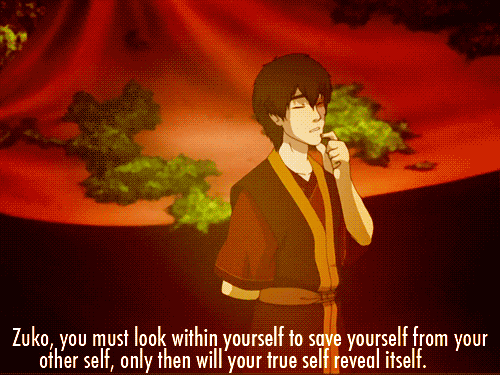"Write what you know" is a piece of writing advice that gets a lot of scrutiny and backlash.
Which, fair. It's not the least rude phrase in the world.
But I think that this writing advice exists for a reason, that it's valid, and sometimes it's just misinterpreted, by both the person giving the advice and the person receiving it.
“Write what you know” really means “write what you understand.”
Many people interpret “write what you know” to mean “write about what you have experienced for yourself,” but that’s obviously silly advice. If everyone followed it, libraries would be much, much smaller. Writing is about using your imagination to explore worlds of possibilities. Bits and pieces of your personal history will of course come into play, but they should always be presented in new and interesting ways. Otherwise, writers would be too bored to actually finish their stories.
When people you think you should probably trust tell you to “write what you know,” they aren’t telling you to fictionalise your own memoir. They’re telling you to write about the things that you understand. A novel may be a great series of lies, but there must be truth at the centre of it all and that truth is a direct result of, and in correlation to, the author’s understanding of their subject matter.
For an author, this means a couple of things:
1. You should always be able to empathise with your characters. You should be able to tap into your emotions, your passions, your relationships to inform their emotions, their passions, their relationships.
If you’re writing a scene about two people walking along the Seine at midnight unable to admit their true feelings for each other, you don’t need to have traveled to Paris or walked along the Seine or talked about the moon on the water when really all you wanted to say was that the same moonlight was making the person you were walking with look very pretty that night.
What you need is to know what it is to take a walk in a place that is romantic no matter if romance is taking place there, to have wanted to say something but been too afraid to say it, to be filled with hope and fear and misery and joy all at the same time.
You should always be able to feel the heart of the scene, instead of simply imagining it.
If you can’t put yourself directly into your character’s shoes, they’ll wind up saying or doing something that won’t quite ring true.
2. You should always be both interested in and knowledgable about the topics and settings that find their way into your stories.
You don’t have to be an archaeologist to write an Indiana Jones movie, but a healthy fascination with history, mythology, and people like T.E. Lawrence, Roy Chapman Andrews, and Gertrude Bell should probably come into play.
You should always not only be knowledgable about the topic you’re writing about, but care for it. You should be able to understand why Indy says “it belongs in a museum!!” (And also why Indy would probably be considered a grave robber by modern archaeologists and judicial systems around the world.) You should understand why your characters feel passionate about whatever they’re engaging in, because you share some of that passion. Even if you much prefer sofas and cafes to deserts and jungles, yourself.
It’s okay if you don’t know very much about a topic when you first get an idea for a book, but after doing some research about it, you should connect to the material in some way.
As long as you’re interested in a topic or place, you’re not breaking the “write what you know” rule by taking the time to understand something you hadn’t when you first imagined your story.
3. Write the kind of story you enjoy reading.
That sounds a little obvious, but people try to write stories they wouldn’t actually enjoy reading themselves all of the time.
If you love reading YA fantasy novels, but feel compelled to write the next Great Literary American Novel, you’re not writing the sort of story you’re familiar with–that you’re passionate about–and that will show on every single page. Those are two very different sort of books. If you love reading YA, exclusively read YA, but try to write the GLAN, you’re not writing what you know. You’re probably not even writing something you truly care about.
And if you find the story you’re writing dull and uninteresting, any reader will probably feel the same way.
If someone has read your work and says something along the lines of “you should stick to writing what you know…”
What they’re really saying, in a super jerk-y way, is that something isn’t resonating as true. That somehow, it doesn’t feel quite real. That they don’t think the characters’ emotional reactions are what they’d be in real life. Or that Indiana Jones is supposed to be a renowned archaeologist, but he doesn’t seem to know much about archaeology???
When they say this, they’re not telling you to go get a degree in archaeology or that in order to write that romantic scene, you must fall in love with someone, walk along the Seine with them, and then write what about what you felt in that moment.
They’re letting you know that there is a disconnect somewhere between you and the writing. That they can tell you haven’t put enough of yourself in this story. That the circles don’t overlap as much as they should in the venn diagram between the knowledge, emotions, and interests the story requires and the knowledge you possess, the emotions you’ve felt, and the interests you invest in.
When somebody says “write what you know,” ask yourself:
if you’ve really done enough research on this topic–if you actually want to write about this topic enough to do the required research
if there’s another emotional well you can draw from to understand how a character might be feeling, how they might react to a circumstance
if this book is one that you yourself would pick up from a library shelf.
And make sure there’s a core of truth within those all those lies.


